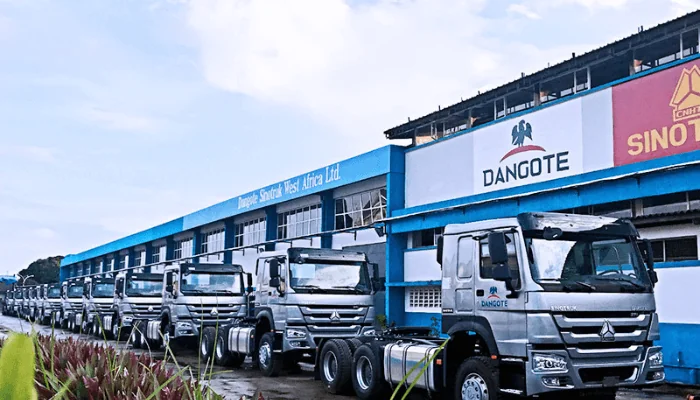
Nigeria’s ambitious push to modernize fuel distribution through compressed natural gas (CNG) trucks has hit its first major obstacle, highlighting the real-world challenges of implementing green energy solutions in emerging economies.
The Dangote Refinery’s landmark project, which aims to deploy 4,000 CNG-powered tanker trucks across the country, has faced delays due to limited international shipping capacity between China and Nigeria.
Originally scheduled to launch on 15 August 2025, the initiative represents a staggering investment of 720 billion naira (around $470 million).
It is designed to reduce fuel distribution costs by more than 1.7 trillion naira annually, while significantly lowering carbon emissions.
However, only 450 trucks have arrived so far, far short of the planned 4,000, because of insufficient shipping availability. A senior Dangote Group official confirmed, “There are not enough ships coming from China to transport 4,000 trucks and 4,000 tankers.”
The bottlenecks underscore structural challenges in Sino-Nigerian trade. Maritime transport between China and West Africa faces constraints from port congestion, weather disruptions, logistical inefficiencies, and customs delays.
Lagos Port, Nigeria’s primary gateway for Chinese imports, struggles to cope with surging demand, forcing Dangote to stagger deliveries. Currently, 200 trucks arrived in the first shipment, 250 in the second, with an additional 150 expected in the following week. With only 11% of the fleet available, the refinery must adjust its launch timeline.
Despite these early hurdles, the project remains a cornerstone of Nigeria’s broader energy transition. With vast natural gas reserves, the country is still heavily dependent on traditional fuels.
The Dangote initiative aligns with national goals of energy independence, environmental sustainability, and economic resilience.
It complements the 2023 Presidential Initiative for Compressed Natural Gas (Pi-CNG), which aims to introduce one million CNG vehicles by 2027, mitigating the impact of recent gasoline subsidy removals.
Beyond cost savings—estimated at 40% compared with diesel distribution—the project is expected to create more than 15,000 direct jobs in the supply chain.
While logistical delays are temporary, Dangote’s CNG rollout could serve as a blueprint for other African nations seeking to modernize energy infrastructure and accelerate the continent’s green transition.



